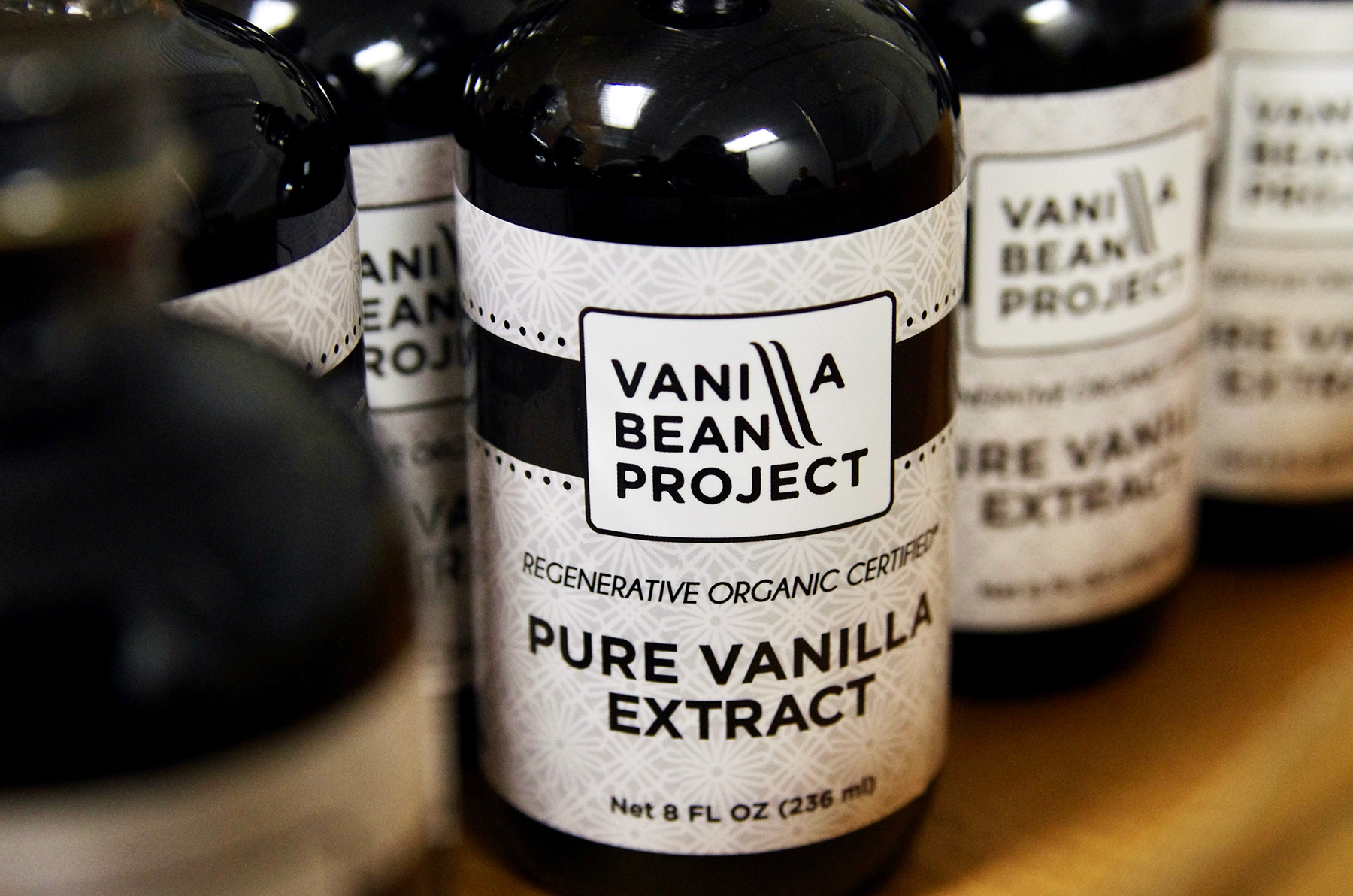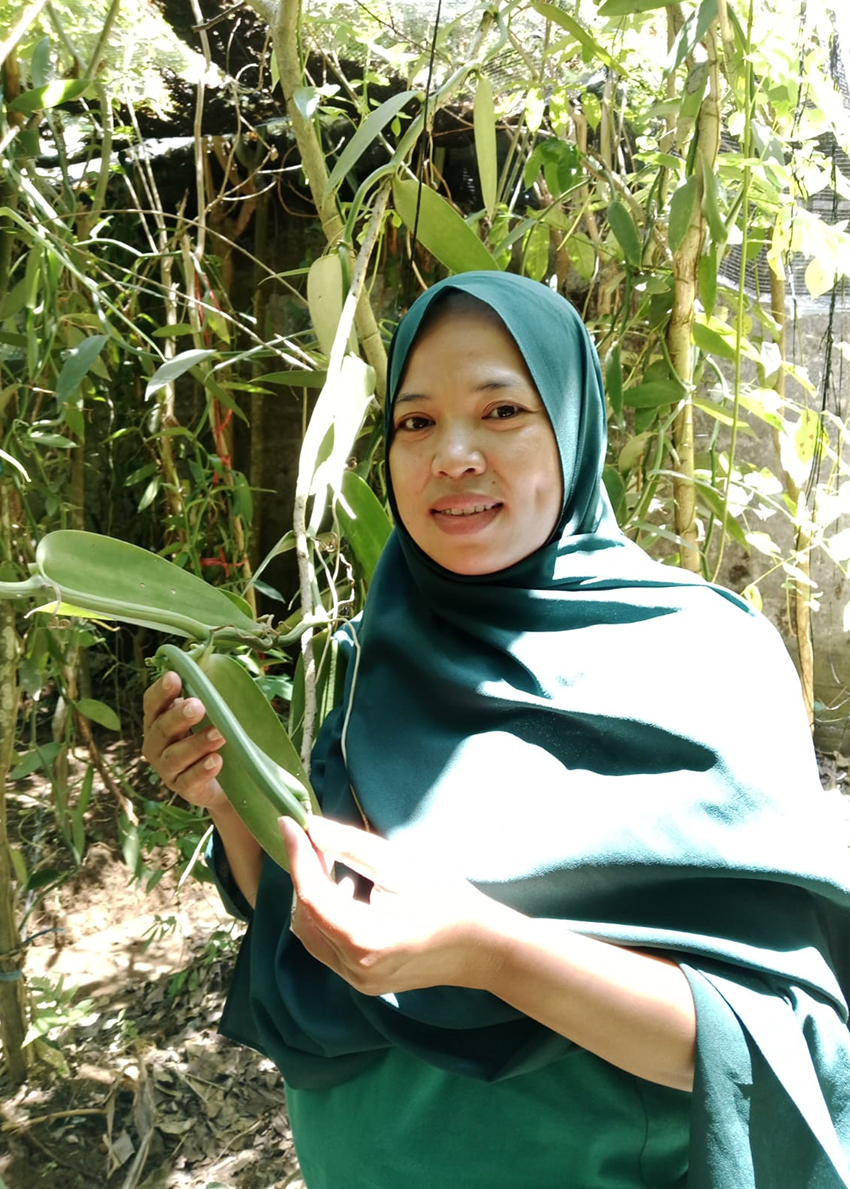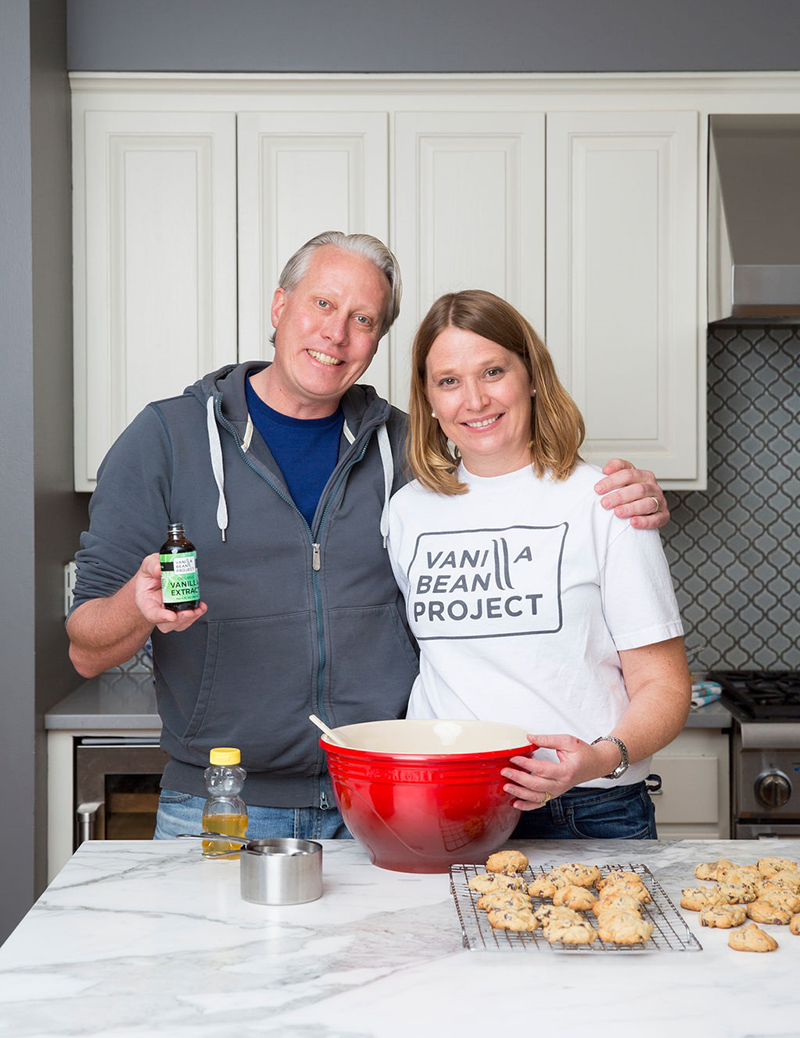“To get big, we had to go small,” says Andy Kubiak, co-founder with wife Sara of the Vanilla Bean Project. From the small town of Lakeland, Minnesota (just over 1,600 population), the inspired couple is quickly growing a market for the most sustainable pure vanilla extract in the world. Last year the Vanilla Bean Project achieved Regenerative Organic Certified (ROC) status for its extract—signifying a step beyond organic, as it includes the highest standards for soil health, animal welfare, and farmer fairness. Making the “best vanilla possible” meant shortening the convoluted supply chain common to large vanilla companies—to ensure appropriate compensation for farmers, sustainably grown vanilla beans to mitigate climate impacts, and assure soil longevity for future generations, and healthy, more delicious vanilla for consumers.
Andy and Sara have discovered a passion that energizes them while making a significant impact on issues they care about. “Vanilla is the world’s favorite flavor,” Sara said. “Even though we only use a teaspoon at a time, people have an immediate and close connection to it,” she told the Minneapolis Star Tribune. The beans, grown mainly by small farmers in Madagascar (80% of the crop), New Guinea, and Indonesia, are the fruit of a vine-growing orchid plant. The Kubiaks want to raise awareness about worker/labor concerns in the supply chain by committing to ROC certification. Consumer buying trends support the wisdom of this effort.
“It’s the same product people have bought for years, but now they can buy it with bigger impact,” said Sara. Launched in 2018, the Vanilla Bean Project stocks its vanilla extract, vanilla beans, and vanilla bean paste in stores across the U.S. and sells its vanilla in bulk to food manufacturers.
Business backgrounds led to regenerative organic

Vanilla Bean Project’s Pure Vanilla Extract
The Kubiaks credit their experience in the food industry for giving them a leg up in starting the Vanilla Bean Project. Andy has worked with organic food since 2003; Superior Natural Foods company supplies and distributes bulk organic food ingredients. Sara’s background is in public relations and she has worked on projects for many major food companies.
“We decided in 2018 to expand into manufacturing, and we built out this facility,” Andy said. “In researching many crops to find where we could make an impact, we became fascinated by vanilla—its origin, the way it’s pollinated—it’s an interesting story.” They started working with Regenerative Organic Alliance (ROA) about a year ago.
It was in Indonesia that they located the first vanilla beans to be ROC certified. Since April 2023, they have been working with Aliet Green (meaning “small steps” to create a green future); Aliet Green was recognized by the United Nations Food Systems Summit as a Top 50 in the world for transforming food systems toward sustainability. Vanilla Bean Project and Aliet Green created new rules in a new market to fundamentally change the global supply chain for vanilla by putting both people and the planet first.
“With ROC certification, consumers get radical transparency in the vanilla supply chain. Currently, we are directly impacting 300+ households growing vanilla today with the goal of increasing this to 1,600 households over time. We negotiated a grower premium for ROC vanilla beans that we use to make ROC Pure Vanilla Extract. Together with our Indonesian supply partner, Aliet Green, we call this the ROC Premium Fund,” said Andy.
Vanilla Bean Project’s most popular product is the pure vanilla extract for bulk orders and the organic vanilla bean paste in retail markets.

Indonesian Vanilla farmer Sutini
“We’re entrepreneurs at heart,” Sara said. “Our growth has been smart growth. We’re in a growth trajectory, with all our certification systems in place, so we can grow with the market in a sustainable clip.”
The company name includes “Project” to suggest a continued effort to offer the best possible vanilla. It also implies working together with different people. “The immediate connection I have with bakers and coffee shop owners over this vanilla is one of the best parts of my job—a shared recognition of the value of quality ingredients,” Sara said.
And consumers are making that choice: ROC-certified products number 1,000 now, and sales were up 39% in 2023.
Andy added that as pioneers in ROC vanilla, “We can revalue the supply chain and make a verifiable impact on small landholders growing vanilla.”
Vanilla’s future looks bright
Breeding specialists have seized on vanilla as a profitable alternative crop for struggling small farmers in tropical, humid climates such as southern Florida. University of Florida researchers, with the help of a $383,000 USDA Sustainable Agriculture Research and Education grant, are developing species that have high yields, disease resistance, and high nutrient content.
Unfortunately, pure vanilla extract is rarely found in packaged food brands—synthetic vanillin is usually the replacement. Biotech firm Evolva has created a synthetic biology form of vanillin (using genetic engineering). “Consumers who want clean labels will always demand pure vanilla extract, and with ROC they’ll ensure sustainability of the natural plant and the farmers who grow it,” said Andy.
“ROC vanilla can be a flagship product, an example of how regenerative organics work,” said Sara. “That’s good news for growers, consumers, and the planet.”
Andy added, “I used to think the ultimate dream was getting to walk to work (he has for the last 15 years). Now, ROC certification allows us to live our vision and grow our business at the same time, giving us an exciting direction for the next 15 years.”





